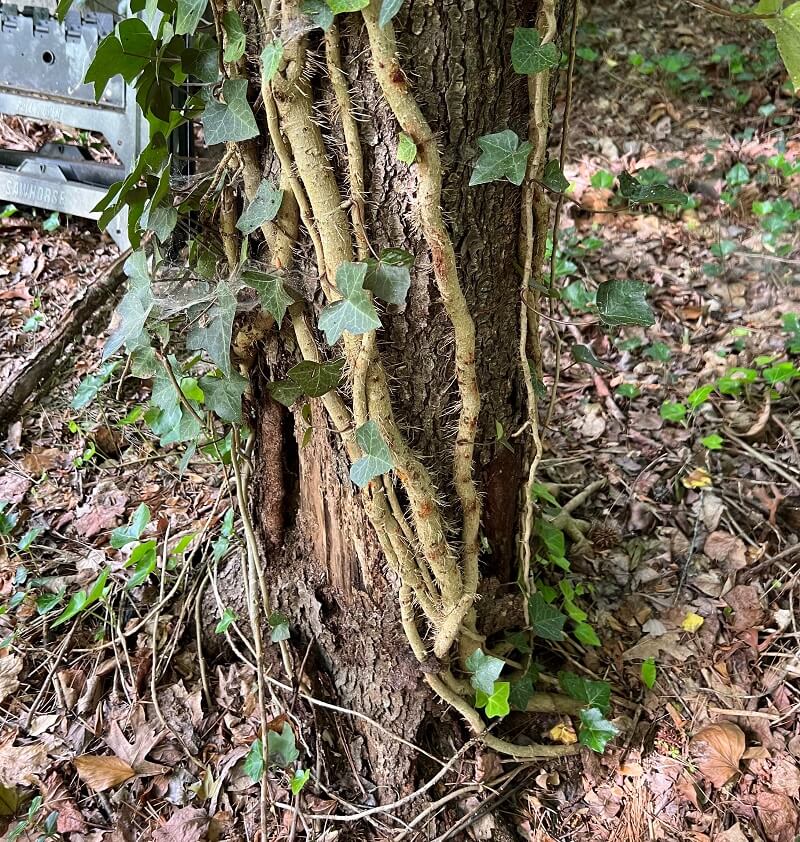Moving into a new home should bring plenty of exciting new beginnings. But for one unfortunate home-buyer, it seems like it's the beginning of a long and tiresome campaign against an irritating invasive species.
On the r/landscaping subreddit, one user posted pictures of trees in their new yard covered in English ivy.
"This sub taught me the horrors of English ivy," they captioned the post. "It was planted by the previous homeowner and when I bought the house recently I didn't know they will slowly kill the trees. I have a lot of work ahead of me."


English ivy might seem like an attractive addition to a garden, but it isn't native to North America, meaning it isn't compatible with a healthy ecosystem. It will grow quickly and spread wildly, creeping up trees, covering fences, and stretching across lawns.
The vines will wrap around tree trunks and slowly choke trees to death, depriving them of the water, nutrients, carbon dioxide, and sunlight essential to growth. What's more, their vines can become thick and stubborn, adding weight to trees that could even bring them down.
Unfortunately, they are quite difficult to remove. Their roots can grow deep and strong, and knowing where to begin can be tricky because of their tendency to tangle up.
A few Redditors had some suggestions to deal with the problem, with one saying: "Get goats. There are companies that will rent goats. They will put up a temporary electric fence and will eat absolutely all foliage within."
It's an increasingly common tactic to deal with excessive and unwanted growth. While goats won't necessarily kill plants completely, they will strip leaves and rip up some vines, making it easier to tackle the root of the issue.
"I think to really solve the problem you've got to pull the ivy," another user said. "I'd recommend mowing what you can. And then you can start pulling."
But this issue just increases the case for ensuring your garden is full of native plants. They will be suited to local soil and weather conditions, ensuring healthy growth and little maintenance. Additionally, they often require less water than monoculture lawns and bring plenty of beneficial bees, which will pollinate plants and help secure local food supply.
Join our free newsletter for easy tips to save more, waste less, and help yourself while helping the planet.









